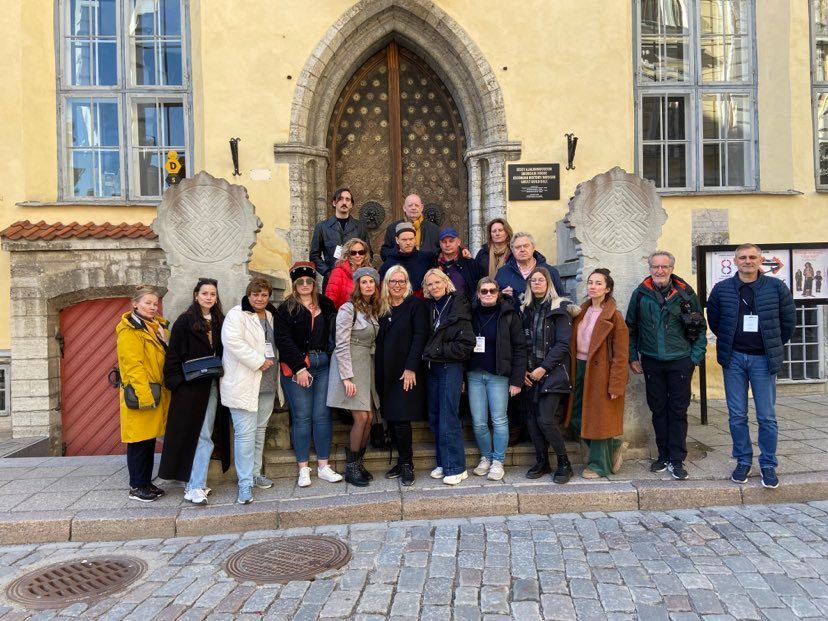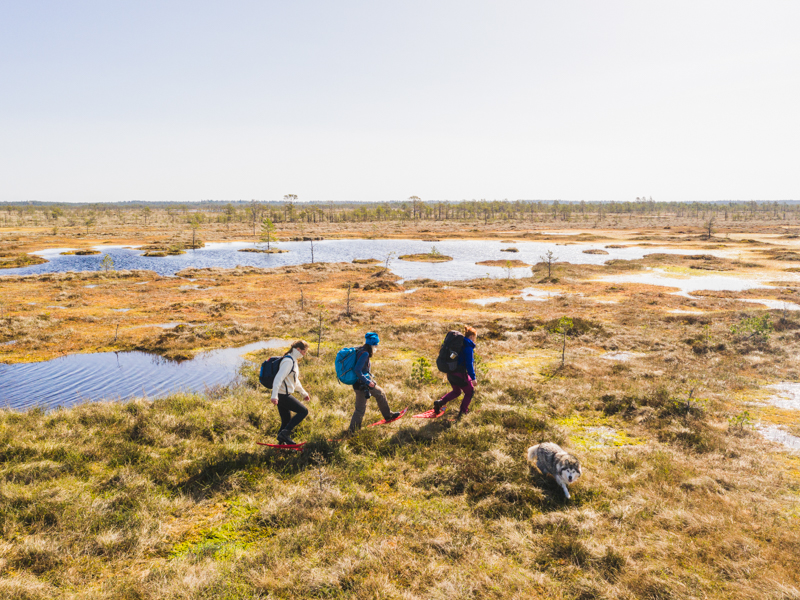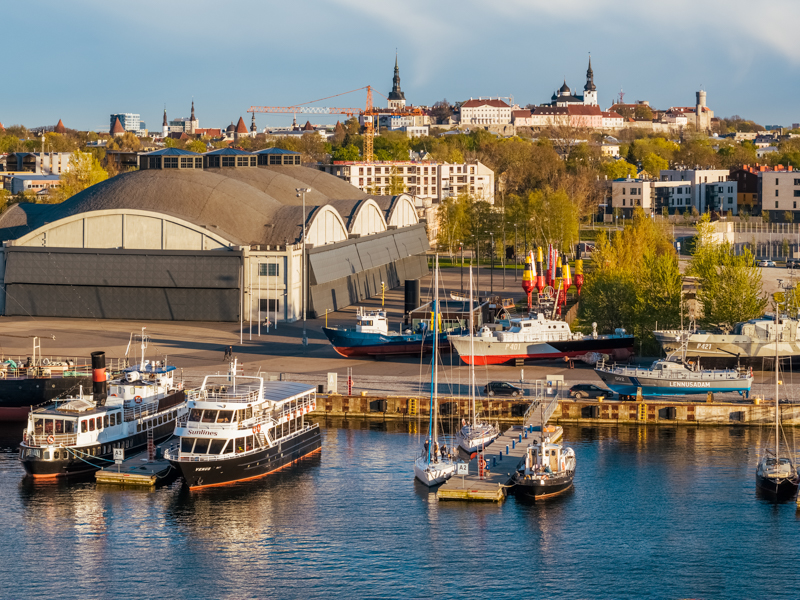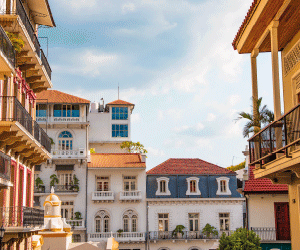Tales of Reval: Tallinn's Magnificent Journey as a Meeting Destination!

Estonia may still be a hidden gem in northern Europe, but its capital is steadily emerging as one of Europe's most innovative destinations. Considered one of the most advanced digital societies in the world with strong environmental convictions, Tallinn brings together a fascinating past with a bright future winking at any association.
HQ went there to tell you everything.
Shrouded by a wavering sun that was hiding the last chills of April, Tallinn opens up in its cobbled streets, revealing its centuries-old legacy of merchant houses, Gothic churches and bastion tunnels. The Estonian capital is a very compact event destination offering excellent value for money and where everything is within walking distance − the city centre for example is only a 10-minute tram/taxi ride from the airport. With some 450,000 inhabitants living on the shores of the Gulf of Finland, discovering this capital starts with the old town, classified as a UNESCO World Heritage Site for its medieval architecture, and regarded as one of the best preserved historical centres in Hanseatic history. Away from these untouched fragments of history, the city instils a reformist future in its young, hip districts like Telliskivi Creative City, Tallinn Creative Hub or Noblessner Port, a collection of factory areas redesigned for new business activities, restaurants and exhibition spaces. “In Estonia, the meetings sector acts as a development facilitator for various professional sectors which has rehabilitated some areas of the city. When we talk about sustainability, economic development or social legacy, this industry is behind great economic value, job creation, networking and positive changes for us,” says Kadri Karu, Managing Director of Estonian Convention Bureau.

In a country where about half the territory is covered by forests and bogs (wetlands), environmental awareness remains wide awake: in 2008, the NGO Let’s Do It World successfully mobilised over 50,000 volunteers for a one-day national clean-up effort that resulted in the disposal of 10,000 tonnes of illegal waste. This set the tone for the capital Tallinn which has been reborn from a heavy industrial past with a holistic approach that has seen green spaces spring up, implementing free public transport for residents, cleverly converting abandoned areas and creating an eco-embassy. The city has a set target of reducing pollutant emissions by 40% by 2030 and was elected the European Commission’s Green Capital of Europe 2023, an award they had long coveted. “We have a broad strategic vision for a more sustainable Tallinn, not only by making it carbon neutral and climate friendly, but by addressing the UN’s sustainable development goals with the actions the city is driving,” Kaidi Aher, Head of Communication for European Green Capital 2023, tells us. “This year, we are developing a four-point programme that pivots the various facets of the city: a smart, sustainable, learning and engaging city!”
But the country doesn’t stop there: it recently ranked 4th among the world's top countries for sustainable tourism (Sustainable Travel Index 2021), and also received one of ve awards from the European Economic and Social Committee for changing its perception of renewable energy and climate neutrality, and launching a communication platform between citizens and the government. Katre Kahre, Sustainability Manager at JOLOS − one of the biggest event agencies in the country – explains what can still be improved: “In Estonia, we are still a bit at the starting point of sustainable event thinking when it comes to international standards and data collection. Our agency has taken the lead by offering consultancy for venues and hotels in order to deepen their understanding of the matter with guidelines and general training. There is still a misconception about the extra costs that these measures entail for an event, which is why only half of our clients claim for sustainable meetings.”

As well as valuing greenery, Estonia also stands out as a cradle of startups, responsible for one of the most bubbling environments for digital businesses. Startup Estonia aggregates no less than 1,198 companies, employing more than 6,000 employees, and among the many success stories are Bolt, Skype, or Wise. The Estonian dream is presented to us as “having as little government as possible, but as much as is necessary”. Here, 99% of public services are available online 24 hours a day and Tallinn has also become the European headquarters for cybersecurity institutes and companies − both the NATO Cooperative Cyber Defense Center of Excellence and the EU IT Agency call it home − thanks to a secure, savvy and exible digital ecosystem that ensures transparency in digital governance. Estonia is the first country to offer e-Residency, a government-issued digital identity document available to anyone in the world. In a society where 98% of the population has digital identity and 99.8% of banking transactions are done online, it is not surprising that these innovations have guided the country to the top of unicorn startups per capita worldwide.
Tallinn has a variety of quirky and unorthodox venues that offer something truly unique, from a Renaissance-style guild hall, a former power station, a maritime museum or even a Russian Tsar’s submarine factory. Located in the former Baltic Railway factory, Telliskivi’s Creative Hub serves as an incubator platform for the local community consisting of 10 buildings and over 300 businesses − of which 90% are creative enterprises − as well as a dozen restaurants, seven galleries and several conference and seminar rooms. Once a boiler house for a power station, the impressive Kultuurikatel (or Creative Hub) now functions as a multifunctional events centre, where different concerts, exhibitions, conferences and workshops are held in its eight industrial-looking spaces. The Proto Invention Factory, on the other hand, is located in the historic port area of Noblessner, originally conceived as a submarine shipyard, which in 2020 was awarded the title of The Best Urban Regeneration in the Baltics. This seafront quarter has been transformed into one of Tallinn’s most popular cultural and leisure areas where you can find multi-purpose venues such as the Kai Art Center, the Noblessner foundry or the already mentioned Proto Invention Factory. In 2012, the Seaplane Harbour facilities opened its Maritime Museum housing over 200 items on display, including a World War II submarine and remains of the oldest ship found in Estonia. The indoor space is available for gala dinners, conference openings and other special events.

Hotels to keep an eye on
- Nordic Hotel Forum
- Radisson Collection Hotel, Tallinn
- Swissôtel Tallinn
Other Articles
About Us
Supported by the Union of International Associations (UIA), the International Association of Professional Congress Organisers (IAPCO) and the Interel Group, the global public affairs and association management consultancy, Headquarters Magazines serve the needs of international associations organising worldwide congresses.














